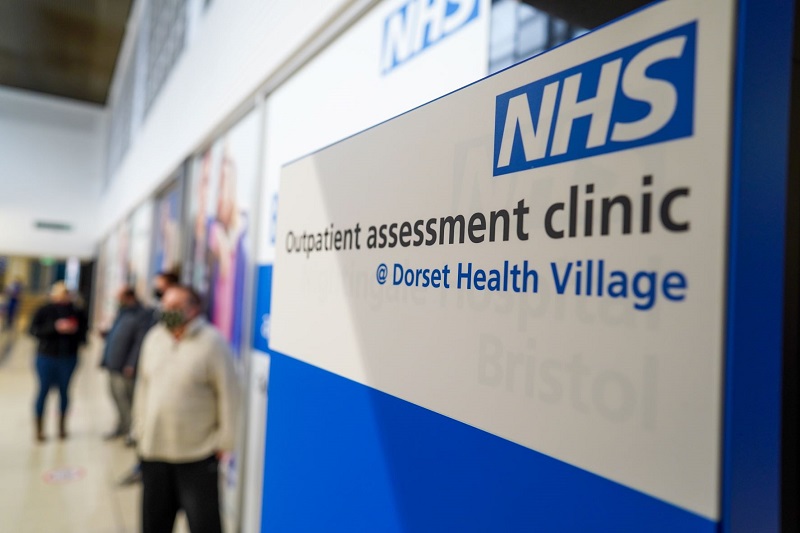Changes to planning legislation, and the drive, hastened by the COVID-19 pandemic, to shift medical services out of hospitals and into communities have created a new opportunity for the healthcare estate.
Recent changes to the Use Classes Order system in England are already having an impact on town centres: both the composition of future high streets, and more specifically, the various roles that healthcare will play in high streets of the future.
The changes provide greater flexibility to change the use of former retail and commercial premises, many of which closed during the pandemic, into health and wellbeing centres.
And one of the first of this new wave of medical facilities has opened in Poole.
Designed by BDP, the architectural practice behind many of the temporary COVID-19 Nightingale hospitals across the UK, has been working with construction and facilities management partner, CFES, and University Hospitals Dorset NHS Foundation Trust to open a new centre for breast screening and diagnostics in the Beales department store in Poole, Dorset.
Situated in the Dolphin shopping centre, it also offers testing and assessments for orthopaedics, ophthalmology, and dermatology diagnoses.
In a highly-sustainable and efficient move, the BDP team has reclaimed and reused materials from the demounted Nightingale hospitals to build a one-stop-shop for much-needed and overdue checks, scans, and tests in the heart of the community.
Paul Johnson, architect director at BDP, who also led the design of the Nightingale Hospital at London’s ExCel centre, explains: “This project is the first of its kind in the country.
We are very proud to be a part of such an impactful and important initiative and hope to deliver this flexible and repeatable solution for another 39 diagnostic centres in original, underutilised spaces across the country
“Not only does it support a circular economy by reusing the materials from the emergency COVID-19 hospitals in an existing building; but it is also built on the same collaborative and sustainable methods of design and construction.”
He added: “NHS waiting lists are at an all-time high and through good design, based on imaginative adaptation of space and recycling of equipment, we are creating real solutions to the problem.
“As a collaborative, interdisciplinary team, we are thinking bigger about the issues faced by today’s society.
“And this new centre will help bring true health benefits to the community, reduce pressure on our NHS, and give a welcome boost to the retail sector.”
He added that the approach was expected to play a central role in the delivery of the other community diagnostic centres announced by the Government last year.

The centre is the first of its kind, but is expected to provide a blueprint for 39 similar centres announced by the Government
“We are very proud to be a part of such an impactful and important initiative and hope to deliver this flexible and repeatable solution for another 39 diagnostic centres in original, underutilised spaces across the country.”
The new centres will benefit millions of people by providing earlier diagnostics and more-convenient and accessible treatment in communities across the country.
And their design will also contribute to the NHS’s net-zero ambitions by providing multiple tests during one visit, reducing the number of patient journeys and helping to cut carbon emissions and air pollution.
Ashleigh Boreham, deputy director of design and transformation at Dorset Clinical Commissioning Group, said: “The pandemic has affected the way NHS trusts deliver services.
Working within established relationships in pro-active design and build project delivery has delivered real benefits for the NHS for the first of this kind of community diagnostic centre
“Unfortunately, this meant many outpatients appointments had to be cancelled to reduce the spread of infection with the rise in number of patients with COVID-19.
“We have reached a critical point where we have to manage the backlog and protect the NHS, which has led us to the opening of this centre.
“I’m so pleased at the speed we have mobilised this solution, but not at all surprised. This team deserves a lot of credit.
“Adapting and repurposing unused retail space is going on elsewhere in the country, but to work within this existing centre and create something built simply for the outpatients, for diagnostics and assessment, is quite different – it’s a first.”
Rob Doubtfire, managing director at CFES, added: “Working within established relationships in pro-active design and build project delivery has delivered real benefits for the NHS for the first of this kind of community diagnostic centre.
“The use and re-use of materials from Nightingale stock requires quick and close engagement from all partners and, once again, we are pleased to have been a part of this with the NHS and BDP.”
